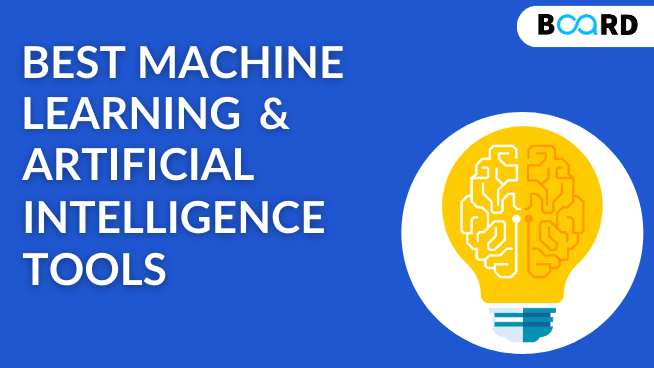Machine Learning and Artificial Intelligence Tools To Learn

Machine Learning and AI are path-breaking technologies if used in the correct manner. Mastering machine learning tools allows you to experiment with data, train your models, unearth new methods, and create newer algorithms. While AI procedures help you incorporate learning, thinking, and self-correction.
In today's era, AI is radically changing the way we consume and interact with tech. From fraud detection to virtual assistants like Siri, AI, and Machine Learning are undergoing tremendous acceleration. So, what are the best tools one can use? Let's take a look.
1. Knime
This is an open-source machine learning tool based on GUI. The best thing about Knime is that it doesn't require any prior knowledge of programming. One can learn from scratch. It is used for purposes such as data manipulation and data mining.
2. Amazon Web Services
AWS offers the deepest and broadest array of tools for your enterprise to build impactful machine-learning solutions quickly. From the biggest corporations to the hottest startups, most of them choose AWS Machine Learning more than any other cloud platform.
AWS comes loaded with a whole bunch of AI toolkits specially dedicated to developers. For instance, AWS Rekognition uses AI to create image interpretation and facial recognition in apps using common biometric security features. Moreover, AWS Lex is another open-source tool that is behind the success of Amazon's personal assistant Alexa. This tech empowers developers to infuse chatbots into mobile and web applications. AWS Polly uses AI to automate voice-to-written text in around 24 languages and 47 voices.
3. TensorFlow
This is an open-source framework that is useful for large-scale as well as numerical ML. This is a blend of machine learning and neural network models. It also happens to be a good friend of Python. The most striking feature is that it runs on CPU and GPU. Natural language processing and image classification are the ones that usually implement this tool.
4. Weka
The next ML tool is also open-source software. One can gain access through a graphical user interface. This tool is user-friendly. The application of this tool finds its usage in research and teaching. In addition, Weka allows you to access other machine learning tools as well such as R, Scikit-learn, etc.
5. Apache Mahout
This tool is a distributed linear algebra framework and mathematically expressive Scala DSL crafted to let mathematicians, statisticians, and data scientists quickly implement their own algorithms. Apache Spark is the recommended out-of-the-box distributed back-end and can extend to other distributed backends. The primary advantage of this project is it makes it easier and faster to populate real value from big data.
6. Azure Machine Learning Studio
This machine-learning studio is pioneered by Microsoft. Similar to Google's cloud autoML, this is Microsoft's baby which offers machine learning services to the industry. This tool has a very easy method to build connections between modules and datasets. In addition, it also provides AI facilities. Similar to TensorFlow, it works on CPU and GPU.
7. Deep Learning 4J
This tool is among the leading open-source written for Java and Java Virtual Machine. It is specially curated to run on enterprise applications such as Apache Spark and Hadoop. It consists of the following:
- Boltzmann machine
- Deep autoencoder
- Deep belief net
- Doc2vec
- Recursive neural tensor network
- Stacked denoising autoencoder
- Word2vec
Conclusion
Documented above are some of the most popular and widely used machine learning tools. They highlight how advanced machine learning and AI is. You can explore our Learning Path in Machine Learning and AI to gain more in-depth knowledge.
The intersection of AI and machine learning is also transforming legal industries with specialized tools. For example, the best AI contract review software enables legal professionals to review documents with increased efficiency and accuracy. By automating the review process, such software not only reduces the risk of human error but also accelerates turnaround times, making it a valuable asset for law firms and corporate legal departments. This demonstrates the diverse applications and benefits of AI across various fields, further underlining its significance in today's technology landscape.